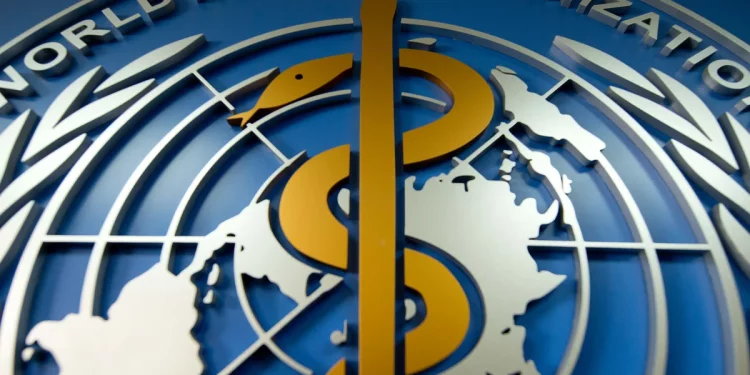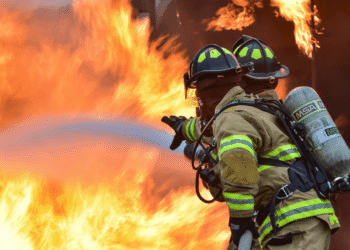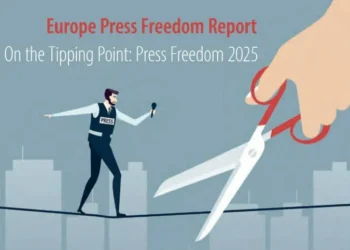As the world approaches the fifth winter since the COVID-19 outbreak, medical professionals as well as citizens are better equipped with information and instruments to protect themselves and others from respiratory viruses, including COVID-19, influenza, and RSV. Below is the statement released by WHO Regional Director for Europe, Dr Hans Henri P. Kluge, in response to the respiratory virus season.
Protect yourself and others this respiratory virus season
As we enter our fifth winter since the start of the COVID-19 pandemic, we are much better prepared, armed with the tools and knowledge we need to keep ourselves and our loved ones safe – not just from COVID-19 but indeed all circulating respiratory viruses, including influenza and respiratory syncytial virus (RSV). This should not be taken for granted; that’s why I have four messages for our Region today.
First, it would be wrong to assume that respiratory viruses always cause ‘mild’ infections. That’s not true. They must be taken seriously. And for at-risk groups like the elderly or those with a range of pre-existing and chronic conditions, they can pose a serious threat to health. Each year, the WHO European Region – 53 Member States across Europe and Central Asia – still experiences up to 72,000 deaths from seasonal influenza, accounting for approximately 20% of the global burden. The vast majority of these deaths can be prevented. Every winter, the vulnerable must be protected. Vaccination against flu is proven to be one of the most effective ways to prevent illness and severe outcomes. But this is not the only respiratory virus we are contending with.
Second, collective amnesia on COVID-19 has set in, and this is concerning. Individuals, communities, and countries understandably want to move on from the trauma of the pandemic years. Yet COVID-19 is still very much with us, co-circulating with other respiratory viruses. In the past month – up to September 22 – the European Region reported just over 278,000 COVID-19 cases, more than any other WHO region, as well as 748 deaths. These figures are likely to be underestimates. The last few years should have taught us that pathogens are unpredictable. COVID-19 devastated every corner of the planet. Mpox clade II emerged unexpectedly in Europe in 2022, and continues to circulate in the Region, even as mpox clade I in Central-East Africa has triggered a Public Health Emergency of International Concern. And RSV and flu will continue to co-circulate with heightened intensity in the coming months, especially with more people gathering indoors due to colder weather.
In addition, a third message, directly to Member States, is to not underestimate the power of new and existing pathogens to wreak havoc on health systems, economies, and society as a whole. Regular and consistent surveillance and monitoring will ensure we are ready for the next major health emergency, whenever and wherever it comes. But we also need to protect our health systems from becoming overburdened. Already, health systems across the European Region are facing multiple challenges, with an aging workforce, severe staff shortages overall, long waiting times, and stretched resources. Investing in health systems, including a renewed focus on primary health care, is essential.
And that brings me to my fourth and final message: Easing pressure on our health systems starts with each one of us taking steps to ensure we don’t become sick or infect others. That’s why we are launching a new campaign today, encouraging individuals and communities across the European Region to apply the lessons of the past few years.
The key message of our campaign: No one knows your risk like you do. The pandemic has taught us how to protect ourselves and others from respiratory infections. Key protective measures include staying at home when sick, practicing hand and cough hygiene, and ensuring proper ventilation. Vulnerable individuals – older people, pregnant women, those with weakened immune systems, and people with chronic conditions – are more at risk of experiencing severe COVID-19 and influenza. For them, vaccination remains essential. Additionally, wearing a well-fitting mask is advised in crowded or enclosed spaces, along with following other protective measures recommended by health authorities.
While this guidance is targeted at individuals, it is important to also recognize that protecting against respiratory viruses is the shared responsibility of governments and all of society. Everyone should play their part in fostering a culture of care and solidarity with the vulnerable. We urge governments and health authorities to provide accurate and up-to-date health information and advice, based on rigorous research, monitoring, and surveillance, to guide individuals and communities toward informed decisions that prioritize public health. Together, we can keep one another safe and well this respiratory virus season.














